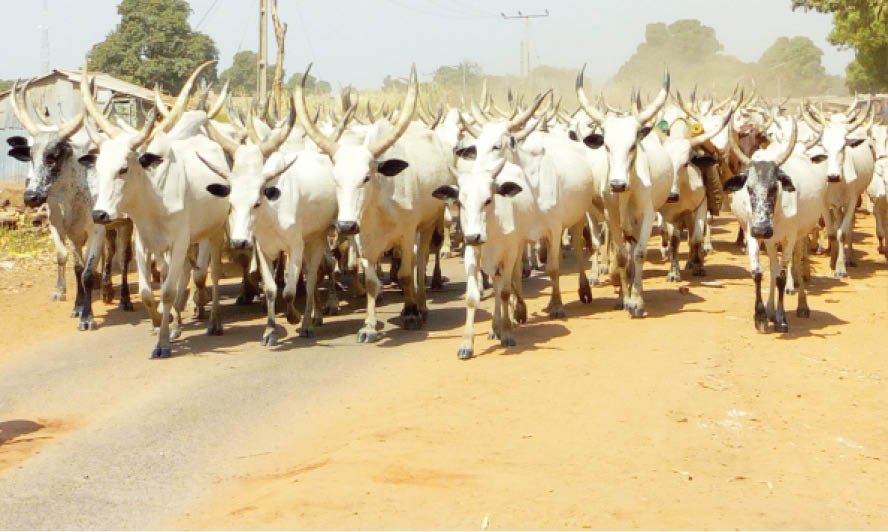As Nigerians rested during the weekend, a video surfaced on social media in which a man claiming to be an indigene of Ebonyi State said they were evicting Fulani from the state. In this video, we see a Fulani settlement with huts decommissioned and property strewn about, some being loaded onto a waiting truck. We see some Fulani people, looking up from packing to cast bewildered glances at the camera.
But most importantly, we hear the voice of this man, this narrator, claiming they had sacked the Fulani from Ebonyi, destroyed their houses and are ready to escort them out because they no longer want herdsmen in their state.
- Kidnapping, attacks in Niger now merchandise
- Troops destroy 197 bandits’ hideouts, neutralise 220 – DHQ
Naturally, the video created a lot of excitement on social media and the hate in the voice of that narrator was amplified by the hate in the tweets that celebrated and sanctioned the move and encouraged similar actions in other places. It was also matched by the hate in the tweeted response to it.
Fortunately, Ebonyi State governor, David Umahi, has denied the occurrence of such hate crime in his state and insisted that the Fulani were free to go about their business as usual, (hopefully keeping their herds out of poor farmers’ farms). One would have dismissed this claim, especially coming from someone rumoured to be nursing presidential ambition, but for the corroboration by the police, Miyetti Allah and the Coalition of Northern Groups.
So it would seem that we have narrowly escaped an incendiary situation that could have resulted in crises and deaths, all on account of a viral video from someone whose face or name no one knows. Yet.
Governor Umahi has ordered the police to find and (to use the words my fellow journalists love using so much) unmask the person behind the video. While the identity of the narrator is unclear, what is clear is that it was meant to instigate further violence and to promote hate for a group that is already receiving so much hate.
The amplification of this hate by those who supported the video on social media and called for the replication of the same is symptomatic of the hate pandemic we are smack in the middle of. This, for me, is an area of interest.
The question of why we hate has always fascinated social scientists and researchers for long and perhaps to understand this better, I recommend the six-part documentary ‘Why We Hate’ produced by the inimitable Steven Spielberg and featuring brilliant intellectuals like Jelani Cobbs and Emile Bruneau, among others.
As evidenced by this viral video and reactions to it, there is a lot of hate for the Fulani, as there is for most other tribes in Nigeria to be honest. But of late, the Fulani have been on the receiving end of fear and loathing. State-sponsored militias like Amotekun and the rogue IPOB-affiliated militia being trained to fight “herdsmen” in the South East have been created to contain and evict them.
To be fair, the fear is not without reason. The once romanticised ideas of the Fulani, depicted in the works of Cyprian Ekwensi—fascinating herdsmen and beguiling milkmaids—for instance, has faded and for many, is only a distant memory. The Fulani whom one met in the wilderness and shared Fura da nono with or a drink of water seemed to have gone extinct and in their place, the idea of the herdsmen as savage mass murderers, kidnappers and destroyers of crops has risen.
While it is clear that the criminal activities of some Fulani—and there have been a lot of these—cannot be fixed by the criminal dislodgement of a few and most likely innocent ones. It would help to understand how these people, who have, for centuries, been a peaceful, fascinating group, morphed into the monsters they are being made out to be, or have become. What drove them to the criminality and savagery with which that tribe has become associated?
Often, a group of people undergo collective trauma that results in a drastic change in social behaviour. The civil war and its attendant issues, for instance, played a significant role in the rise of armed robbery and criminality among the Igbo and continues today to nurture the hatred that group feels for other groups, especially people from the North. I remember during my service year in the Southeast being accosted, alongside my friends, by an enraged Igbo trader. The trigger, apparently, was that we were freely speaking Hausa in the street, among ourselves, and this seemed to offend him deeply.
He only calmed down and allowed himself to be dragged away by his kinsmen when he realised we were “government pikins” and have a far better grasp of English than his unfinished primary school education equipped him with.
Some collection traumas are large and explosive, like the civil war, others, like global warming and population explosion that affect the Fulani and their way of life happen quietly, mostly unnoticed.
But this is not exclusive to the Fulani. Every social group in this country is nursing one collective trauma or the other. These traumas, borne out of social injustice, neglect, exploitation and displacements have enabled the widespread criminality we witness today and has advanced the rise of ethnic militias that are quick to attack, kill and pillage the next tribe or group. And we do have a lot of tribes, a succession of governments that have exacerbated ethnic fault lines and hence lots and lots of conflicts.
The rise of ethnic militias, such as the ones advocating for the eviction of one tribe or the other from certain spaces boils down to one thing—the absence of a national integration policy.
For too long, the Nigerian state has enabled the segregation of people, put in place policies, like the use of indigene certificates, which have served to deepen these divides. Even the federal character policy has not evolved to create a level playing ground, where candidates for government positions compete on an equal footing. It serves only to hold places based largely on geography than merit. Like most policies, it has failed to evolve and has become stagnant and unresponsive to changing times, sadly, like the cherished lifestyle of the migrant Fulani. And perhaps like the National Youth Service Corps as well.
A comprehensive national integration policy such as is in place in countries like Norway, Singapore and others should systematically break ethnic barriers that have kept Nigerians at each other’s throats for decades, and build a cohesive society that pushes in one direction rather than against each other.
The British brought this country together in 1914. If we are going to live together and in peace, we must be deliberate about it. And the sooner we do that, the better.

 Join Daily Trust WhatsApp Community For Quick Access To News and Happenings Around You.
Join Daily Trust WhatsApp Community For Quick Access To News and Happenings Around You.

